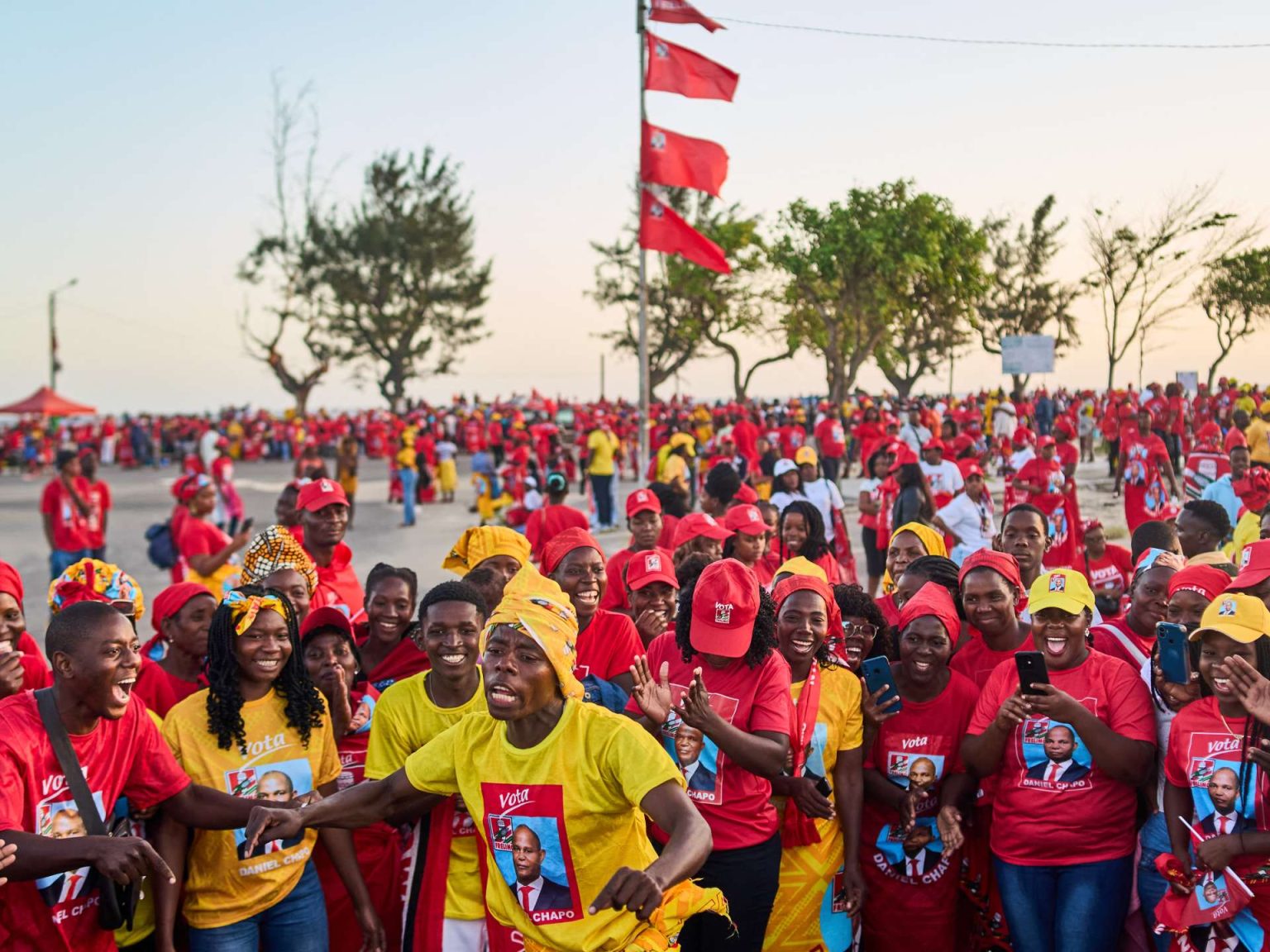Voters in Mozambique are gearing up for a highly anticipated election that will likely see the ruling party Frelimo maintain its stronghold on power. With close to 17 million voters set to head to the polls, the nation is expected to choose its next president, along with members of parliament and provincial assemblies. Frelimo has been in power since the country gained independence from Portugal in 1975, and their candidate, Daniel Chapo, is poised to succeed the outgoing President Filipe Nyusi. However, independent candidate Venancio Mondlane has gained significant traction, especially among disenchanted youth, posing a formidable challenge to Frelimo and the official opposition party, Renamo.
One of the key issues facing Mozambique’s next leader is the ongoing insecurity in the northern province of Cabo Delgado, where an ISIL-affiliated group has been carrying out attacks since 2017. Hundreds of thousands of people have been displaced, and many have returned to devastated communities with destroyed infrastructure. Candidates have promised to address the development issues exacerbated by the insecurity, including the halting of crucial gas projects by French energy company TotalEnergies. High levels of unemployment, hunger, and severe food shortages due to drought are also pressing concerns that need to be tackled by the new leadership.
Mozambique is also recovering from an economic crisis linked to a hidden debt scandal that saw the former finance minister jailed for arranging secret loan guarantees with payoffs for government-controlled fishing companies. The country ended up with $2bn in “hidden debt,” leading to a financial crisis as the IMF suspended financial support. Campaign messages from the leaders have pledged to address these financial challenges and manage the budget better to create space for social spending, given the high debt levels. It is crucial for the incoming government to work on stabilizing the economy and restoring public confidence in financial management.
Another significant issue is the potential for unrest and protests following the election results due to allegations of vote-rigging and fraud in the past. The local elections held a year ago were marred by such accusations, leading to violent protests in the capital, Maputo, and surrounding areas. Activists and analysts anticipate similar reactions if the upcoming vote is disputed, and the possibility of post-election unrest is heightened by Mondlane’s campaign generating excitement among the population. The outcome of the election will be officially announced by the National Election Commission and subsequently validated by the Constitutional Council, with parties having the opportunity to file objections if needed.
In conclusion, Mozambique’s upcoming election presents a crucial moment for the country as voters decide on the next leadership that will address pressing issues such as insecurity, economic recovery, and social development. While Frelimo is expected to maintain its long-held power, the rise of independent candidate Mondlane signifies the shifting political landscape and the desire for change among the electorate. The successful candidate will need to navigate these challenges and work towards ensuring stability, addressing grievances, and promoting inclusive growth for the benefit of all Mozambicans. The international community will also be watching closely to see how the new leadership tackles these complex issues and whether they can lead the country towards a brighter and more prosperous future.













